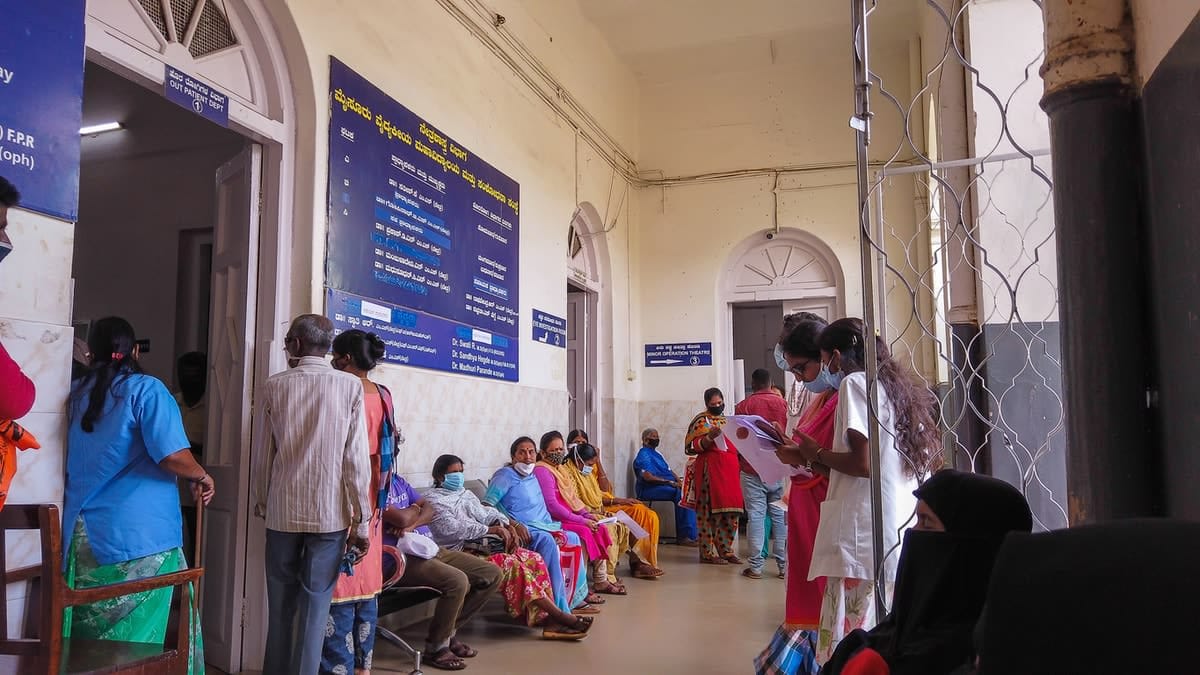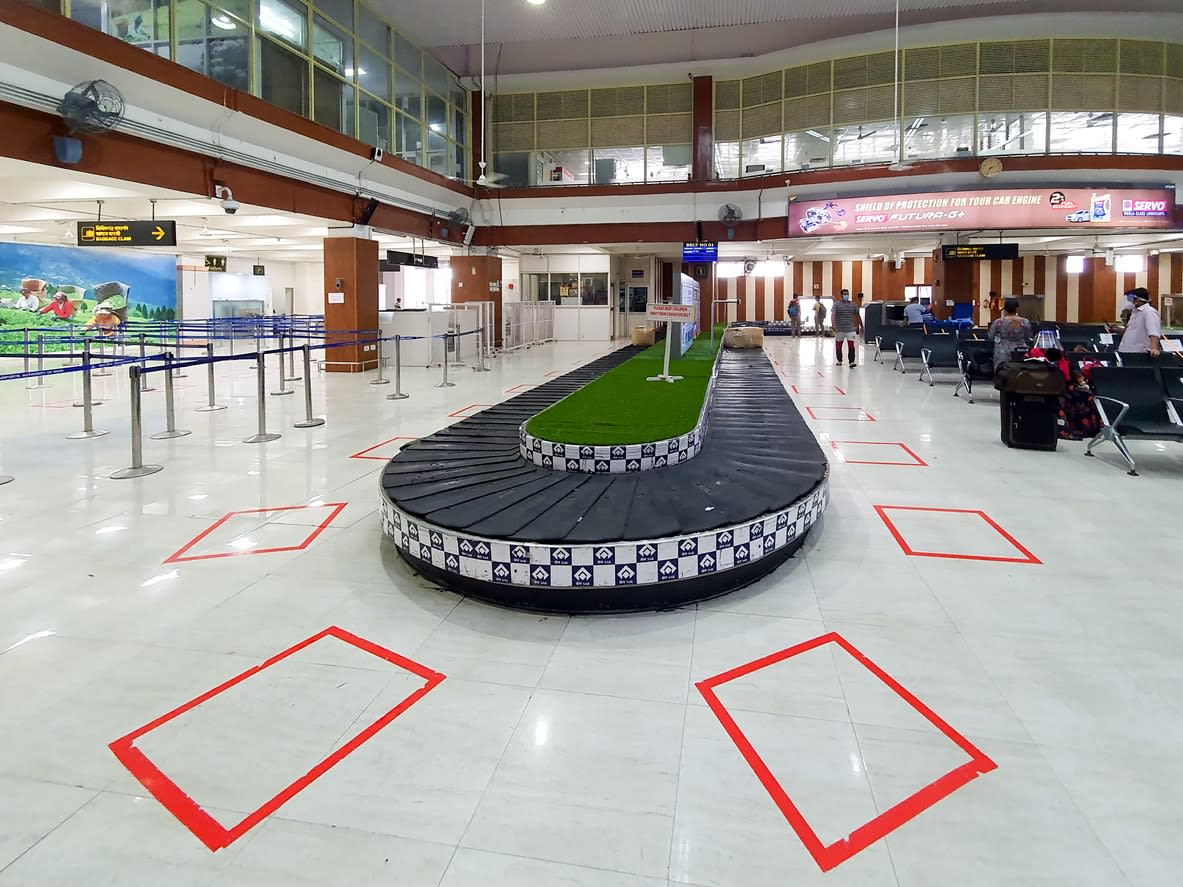
On 25 April, 2021, The Australian republished a report titled “Modi leads India into viral apocalypse". The next day, the High Commission of India in Canberra sprang into action on Twitter asking the paper to publish a rejoinder to, “set the records straight, and also refrain from publishing such baseless articles in future”.
Urge @australian to publish the rejoinder to set the record straight on the covid management in India and also refrain from publishing such baseless articles in future. @cgisydney @CGIPerth @cgimelbourne @MEAIndia https://t.co/4Z3Mk6ru3W pic.twitter.com/4bgWYnKDlB— India in Australia (@HCICanberra) 26 April, 2021
Those of us from India and currently living in India following the recent exponential surge in COVID cases are well aware of the premature and unethical political rhetoric of India being “in the endgame” of the pandemic.
It came as no surprise to us when the second COVID-19 wave took shape in the country around mid-March. What has, however, shocked us (Indians and those of Indian heritage) to our core is the magnitude of the tragedies unfolding inside our homes and around us, as we experience collective grief.
Most Indian cities are experiencing a crash in already inadequate health systems. Hospitals are overwhelmed with the amount of people in need of care, along with a severe shortage in oxygen supply and life-saving equipment.
Furthermore, although the government of India recently announced its vaccination drive open for all persons aged 18 years and over, this has been met by unavailability of vaccines.
A faulty vaccination policy with mismanagement of pricing and distribution of vaccines has led to responsibilities being shifted onto individual state governments and private hospitals to procure vaccines on their own. This has not only resulted in differential vaccine pricing, but also the egregious exclusion of those who cannot afford the vaccines nor access private health centres.
Even more outraging has been the criminalisation of some citizens from seeking help on their own through social media. For example, the Chief Minister of Uttar Pradesh announced that those found to be “spreading rumours” about shortage of oxygen and hospital beds on social media would have their properties seized.
The Supreme Court of India has condemned this criminalisation of ordinary citizens by warning state governments and the police against contempt of court action if citizens’ SOS messages were treated as an offence.

Australia’s hardline response
With the backdrop of these distressing experiences in India, the Australian government’s response was to announce a blanket travel ban and criminalise the return of its citizens from India. The government’s ban is to be lifted next week, but its initial hardline approach still bears further discussion, given the backflip is likely politically motivated and in response to a severe backlash to its initial decision.
Australia’s disproportionate response of denying its citizens the right to return home or travel to comfort their loved ones and perform last rites for those lost is fundamentally unethical and immoral. Another aspect that hasn't escaped people’s attention is the discriminatory subjection of India to the Australian travel ban.
Australia’s disproportionate response of denying its citizens the right to return home or travel to comfort their loved ones and perform last rites for those lost is fundamentally unethical and immoral.
One cannot help but question why such a blanket ban, along with the criminalisation of returning Australian citizens, did not take shape with primarily white countries, such as the US and the UK, when they faced their own devastating versions of the pandemic. This could be reflective of the racist roots of Australia as a settler colony.
Indeed, political leaders in positions of power from both India and Australia have demonstrated a failure to ensure human dignity in these very trying times.
International travel restrictions and bans had first been implemented more than a year ago in a bid to outsmart the virus and its spread during the first wave of the pandemic. Australia has been very successful at curtailing the spread of the coronavirus; however, it’s also left thousands of people in distress at being separated from their loved ones across borders, with many international students stranded and unable to rejoin Australian universities.
Moreover, already marginalised individuals and groups, such as refugees and migrants, are even more at risk.

On reading about the effectiveness of international travel restrictions to control the pandemic, I found that researchers recommend temporary international travel restrictions in the initial stages of a pandemic to cut the spread of the virus. In fact, public health experts have pushed for the strengthening of transmission-reduction interventions instead of travel bans and mass quarantine. These interventions are along the lines of social distancing, mask-wearing, testing, contact tracing and voluntary quarantining.
An article titled “Viruses don’t carry passports: Why travel bans won’t work to stop the spread of COVID-19” cautions against people putting themselves at greater risk when they’re unable to travel through official pathways.
When governments establish official pathways between nations, they’re able to monitor and contact trace in a more effective and safer manner. It also ensures that individuals, even the most vulnerable, have the ability to act on their rights to life and to return home.
What both India and Australia need to do is re-examine their respective COVID-19 response policies, and take a more ethical approach in establishing systems of prevention and response. At the most basic level, policymakers and political leaders must ask themselves the question: “Is the gain from this response proportional to the harm it is causing during both short and long terms?”
Researchers Arunachalam and Halwai’s recommendations of using a public health ethics approach to developing pandemic responses is useful to consider for both India and Australia.
Development and formulation of any policy aimed at responding to the current pandemic should follow a “risk-benefit analysis” by paying particular attention to its possible effects on marginalised sections of the society.
Strengthen ethical public health responses
Instead of criminalising their citizens, both countries must invest more in strengthening ethical public health responses.
First, people’s autonomy should not be undermined, but respected and supported through the provision of adequate resources and facilities. These can be free and continuous testing, free and streamlined vaccination, subsidised and free quarantine locations or housing, and access to adequate healthcare.
Secondly, governments need to make the effort of meaningfully engaging with communities by ensuring fairness in the implementation of reasonable control measures and provision of scientific information that is clear, inclusive and easy to follow.
Finally, accountability and transparency should be the cornerstones in the implementation of public health measures, as well as distribution of resources.
The author would like to thank Sweta Patel, a PhD candidate at Monash's Faculty of Education, for her views on the Australian travel ban pertaining to India from the perspective of an Indian-heritage Australian citizen in Australia who has family in India.





